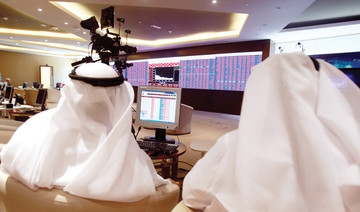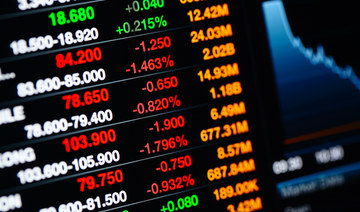BERLIN: US tariffs and sanctions policies are likely to keep investors on their toes in the coming week as European politicians and policymakers continue their summer break, while economic data from Germany and the euro zone will also be in focus.
Washington’s latest sanctions on Russia have battered the rouble, and Turkey’s lira has been hammered by concern that Ankara is sliding into a full-blown economic crisis.
US President Donald Trump’s determination to push ahead with sanctions on Tehran that also target foreign companies doing business with Iran has opened another battle front in addition to a much broader dispute over trade tariffs.
German business associations have warned that companies are increasingly suffering from Trump’s sanctions policies — including those against Iran — as well as the tariffs he is imposing in an escalating tit-for-tat trade conflict with China.
“In terms of geopolitics, the trade war between the US and China could enter center stage again next week,” ING economist Carsten Brzeski said. “Also, keep an eye on Turkey, where some kind of IMF involvement is getting closer.”
Turkey’s lira has plunged to record lows on concerns about President Tayyip Erdogan’s influence on monetary policy and increasingly authoritarian rule, and about a diplomatic rift with Washington over Ankara’s detention of several Americans including an evangelical pastor.
On the data front, Germany on Tuesday will be the last of the large euro zone economies to publish an estimate for gross domestic product (GDP) in the second quarter.
Analysts polled by Reuters expect the quarterly growth rate to pick up to 0.4 percent from 0.3 percent in the first quarter, suggesting that Europe’s largest economy is humming along despite the uncertainty caused by US tariffs and sanctions.
Rising risks
Also on Tuesday, the euro zone will report its second estimate for GDP in April-June. Preliminary data last month showed economic growth in the 19 countries sharing the euro slowed to 0.3 percent quarter-on-quarter.
Eurostat’s preliminary figures for euro zone growth have often been revised up in the past, but weaker-than-expected June industrial output data from Germany and Spain have suggested this may not be the case this time.
“An upward revision would change little in economic terms, but could bolster perceptions of stable growth despite rising risks,” Oliver Rakau from Oxford Economics said.
The European Central Bank has said that risks to global growth are growing as the spectre of protectionism and the threat of higher US tariffs sap confidence.
Final inflation data for the euro zone due on Friday is likely to confirm that headline consumer price inflation accelerated to 2.1 percent year-on-year in July from 2.0 percent in June, mainly because of a spike in the cost of energy.
The ECB wants to keep headline inflation below but close to 2 percent over the medium term.
“For the ECB all of this means that it can remain on track with its dovish tapering,” ING’s Brzeski said. “The timing of a first rate hike, however, remains extremely uncertain.”
The ECB plans to wrap up its unprecedented 2.6 trillion euro stimulus program known as quantitative easing (QE) by the end of the year and keep interest rates at record lows through the summer of 2019.
Surveys suggest concerns over trade have already begun to dampen investment activity which could translate into meagre growth and moderate inflation rates in the second half of the year.
“All of that should not alter the ECB’s QE exit plans, but it will keep all of us busy speculating about the first rate hike,” Rakau from Oxford Economics said.
Tariffs and sanctions turmoil may overshadow EU, German growth data
Tariffs and sanctions turmoil may overshadow EU, German growth data
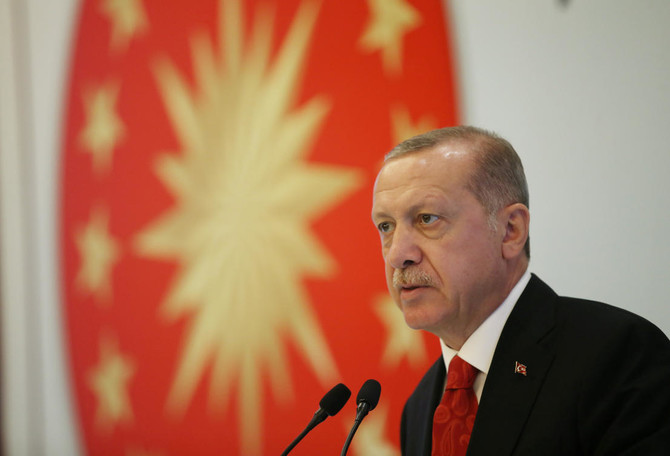
- Turkey’s lira has been hammered by concern that Ankara is sliding into a full-blown economic crisis
- German business associations have warned that companies are increasingly suffering from Trump’s sanctions policies
Saudi economy witnessing a fundamental shift, says minister
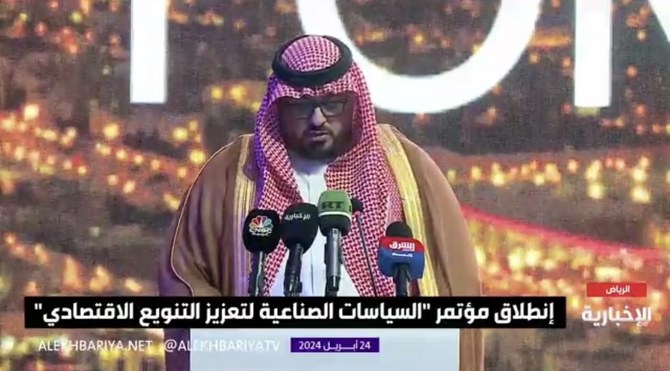
RIYADH: Since the launch of Vision 2030, Saudi Arabia has witnessed a fundamental shift in its economy and the business environment is transforming with the creation of new sectors, said the Kingdom’s economy minister.
Faisal Al-Ibrahim was speaking at a conference in Riyadh on Wednesday during which he highlighted the fast-evolving business landscape of the Kingdom focused on diversifying its income sources away from oil.
Speaking at the event titled “Industrial policies to promote economic diversification,” the top official said there have been fundamental changes in the legislative and economic regulations to promote sustainable development since the launching of the Vision 2030 plan.
He said the Kingdom’s efforts to diversify its economy have led to the creation of new sectors due to the initiation of several megaprojects such as NEOM, the Red Sea, and others.
“We stand at a crossroads to change the global economy,” Al-Ibrahim said.
He stressed the need for strategies to ensure a flexible and sustainable economy.
“The presence of foreign investments will develop competitiveness in the long term,” the minister affirmed.
The minister also highlighted how the Kingdom was working in the medium term to focus on transforming sectors that represent a technological shift.
Saudi Arabia is keen on achieving development in the medium term by balancing short-term profits and promoting long-term success, Al-Ibrahim highlighted.
Since the launch of the vision, the Ministry of Economy and Planning has conducted several economic studies aimed at diversifying the economy by developing objectives for all sectors, raising complexity levels, and studying emerging economies to enhance the Kingdom’s capabilities.
Saudi Arabia closes April sukuk issuance at $1.97bn
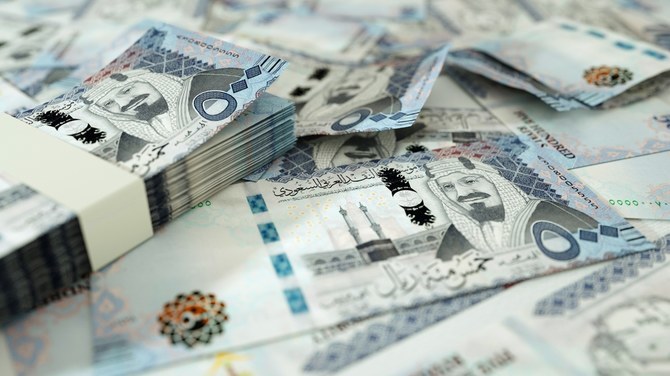
RIYADH: Saudi Arabia has completed its riyal-denominated sukuk issuance for April at SR7.39 billion ($1.97 billion), representing a rise of 66.44 percent compared to the previous month.
The National Debt Management Center revealed that the Shariah-compliant debt product was divided into three tranches.
The first tranche, valued at SR2.35 billion, is set to mature in 2029, while the second one amounting to SR1.64 billion is due in 2031.
The third tranche totaled SR3.51 billion and will mature in 2036.
“The Kingdom also plans to expand funding activities during the year 2024, reaching up to a total of SR138 billion from what has been stated previously in the Annual Borrowing Plan, with a portion of this amount already covered up to date,” said NDMC in a press statement.
It added: “This step comes with the aim of capitalizing on market opportunities to achieve proactive financing for the coming year and utilizing it to bolster the state’s general reserves or seize additional opportunities to enhance transformative spending during this year, thereby accelerating strategic projects and programs of Saudi Vision 2030.”
In March, NDMC concluded its second government sukuk savings round for March, with a total volume of requests reaching SR959 million, allocated to 37,000 applicants.
The center added that the financial product, also known as Sah, offers a return of 5.64 percent, with a maturity date in March 2025.
Earlier this month, Fitch Ratings, in a report, said that global sukuk issuance is expected to continue growing in the coming months of this year, driven by funding and refinancing demands.
The credit rating agency noted that various other factors like economic diversification efforts by countries in the Gulf Cooperation Council region and development of the debt capital market will also propel the growth of the market in the future.
In January, another report released by S&P Global revealed that sukuk issuance worldwide is expected to total between $160 billion and $170 billion in 2024, driven by higher financing needs in Islamic nations.
The report noted that higher financing needs in some core Islamic finance countries and easing liquidity conditions across the world are two crucial factors which will drive the growth of the market this year.
Closing Bell: TASI edges down to close at 12,355 points
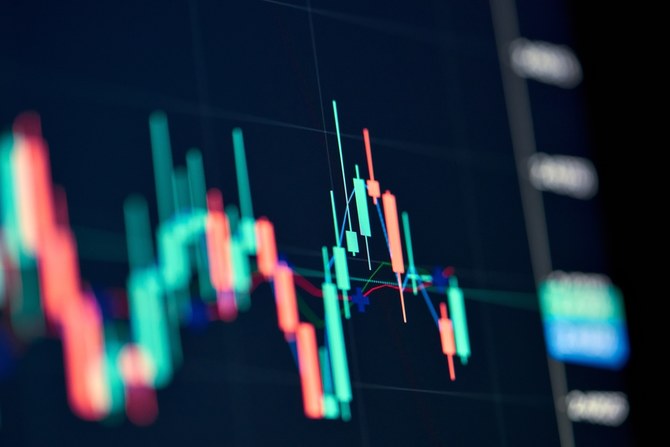
RIYADH: Saudi Arabia’s Tadawul All Share Index dipped on Wednesday, losing 128.72 points, or 1.03 percent, to close at 12,355.69.
The total trading turnover of the benchmark index was SR8.45 billion ($2.25 billion) as 41 of the listed stocks advanced, while 187 retreated.
Similarly, the MSCI Tadawul Index decreased by 14.78 points, or 0.95 percent, to close at 1,548.62.
Also, the Kingdom’s parallel market Nomu dipped, losing 365.84 points, or 1.37 percent, to close at 26,326.12. This comes as 17 of the listed stocks advanced, while 45 retreated.
The best-performing stock of the day was Al-Rajhi Co. for Cooperative Insurance as its share price surged by 9.87 percent to SR138.
Other top performers include Al Sagr Cooperative Insurance Co. and First Milling Co., whose share prices soared by 6.38 percent and 5.63 percent, to stand at SR35.85 and SR78.80, respectively.
In addition to this, other top performers included Batic Investments and Logistics Co. and Saudi Research and Media Group.
The worst performer was Al-Baha Investment and Development Co., whose share price dropped by 7.14 percent to SR0.13.
Other weak performers were National Co. for Learning and Education as well as Arriyadh Development Co., whose share prices dropped by 5.95 percent and 5.91 percent to stand at SR148.60 and SR22.60, respectively.
Moreover, other subdued performers also include Red Sea International Co. and AYYAN Investment Co.
On the Kingdom’s parallel market Nomu, the best-performing stock of the day was Osool and Bakheet Investment Co., as its share price surged by 12.05 percent to SR40.90.
Other top performers on Nomu include Arabian Plastic Industrial Co. and Lana Medical Co., with their share prices soaring by 7.42 percent and 3.59 percent, respectively, reaching SR37.65 and SR41.85.
The worst performer was Jahez International Co. for Information System Technology, whose share price dropped by 5.88 percent to SR32.
Other weak performers were Alhasoob Co. as well as Aqaseem Factory for Chemicals and Plastics Co., whose share prices dropped by 3.61 percent and 3.38 percent to stand at SR64.10 and SR62.80, respectively.
On the announcements front, HSBC Saudi Arabia, serving as sole financial advisor, joint bookrunner, underwriter, and lead manager, has announced the intention of Dr. Soliman Abdel Kader Fakeeh Hospital Co., known as Fakeeh Care Group, to proceed with its initial public offering on the main market of Saudi Exchange.
According to a statement, the offering will include 49.8 million ordinary shares, with 19.8 million existing shares and 30 million new shares upon completion.
This offering is set to represent 21.47 percent of the company's share capital post-capital increase.
Saudi Exchange and the Capital Market Authority approved the listing and IPO, respectively, with the pricing of shares to be determined after the book-building period.
Ministry tenders contract for expansion of Prince Faisal bin Fahd Stadium
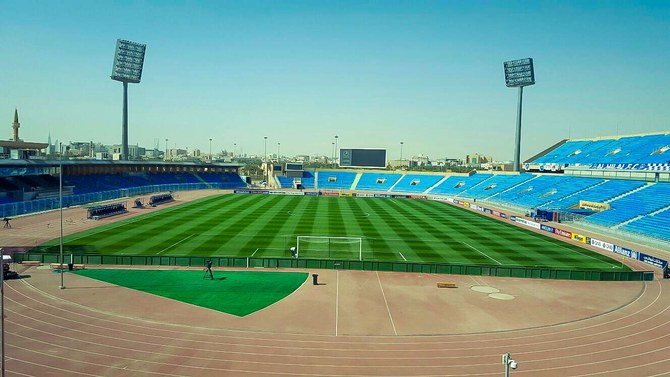
RIYADH: Saudi Arabia’s Sports Ministry has tendered a contract to boost the capacity of Riyadh’s Prince Faisal bin Fahd Stadium to 45,000 seats up from its current 22,188.
The expansion project comes as the Kingdom prepares to host the Asian Football Confederation Asian Cup in 2027, reported MEED.
This initiative aligns with Saudi Arabia’s plan to build sports stadiums under its SR10.1 billion ($2.7 billion) capital projects program.
The ministry requested proposals on April 8 and expects to receive bids on June 14.
In April, the ministry also tendered an early works contract for the expansion and development of the Prince Mohammed bin Fahd Stadium in Dammam.
At the time, the scope of the contract included the stadium’s decommissioning, demolition, and bulk excavation, as well as the relocation and setting up of related facilities.
In July 2023, the ministry invited firms to submit pre-qualification documents for the main construction contracts for the schemes in the capital projects program.
The undertakings, which are set for completion before the 2027 AFC Asian Cup, entail increasing the capacity of King Fahd Stadium in Riyadh to 92,000 seats and boosting the seating capacity of Prince Mohammed Bin Fahd Stadium to 30,000 seats.
It also includes increasing the seating capacity of the Prince Saud bin Jalawi Stadium in Al-Kahir to 45,000 and building a sustainable New Riyadh Stadium north of the city with 45,000 seats.
Another main element of the ministry’s projects program is the construction of as many as 30 new training grounds and facilities in proximity to the stadiums that will be used for the 2027 competition.
Construction on the projects is expected to start in July 2024 and scheduled to be completed by December 2025.
A total of 18 facilities will be ready in time for the 2026 AFC Women’s Cup.
PIF-owned ROSHN expands in Eastern Province with new residential project
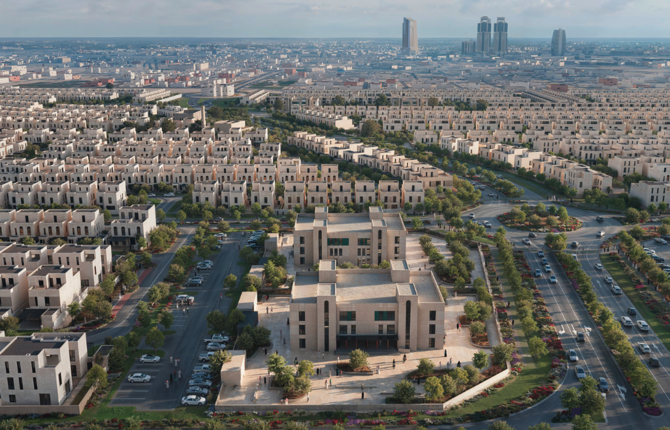
RIYADH: Saudi developer ROSHN Group has launched its first integrated community, ALDANAH, in the economic hub of Greater Dammam, featuring over 2,500 homes spread across 1.7 million sq. m.
The development, the second in the Eastern Province by the Public Investment Fund-owned giga-project, will cater to nearly 10,000 inhabitants who will benefit from exemplary energy conservation, including modern insulation, according to a press release.
ROSHN highlighted that the project is strategically located in the heart of Greater Dammam, at the meeting point of Dammam, Dhahran, and Al Khobar. It’s conveniently situated next to King Abdulaziz Road and is just a 20-minute drive from King Fahd International Airport.
The project will feature several amenities for residents, including a city experience center, a district mall, and three neighborhood retail centers. It will also include a primary healthcare center, mosques, and six schools, all reflecting the region’s rich cultural heritage, the release added.
The company also mentioned that the range of residences will offer a diverse selection of homes suitable for every family, including duplexes and villas tailored specifically for ROSHN’s latest community.


